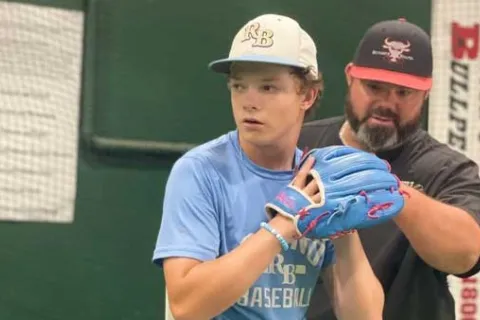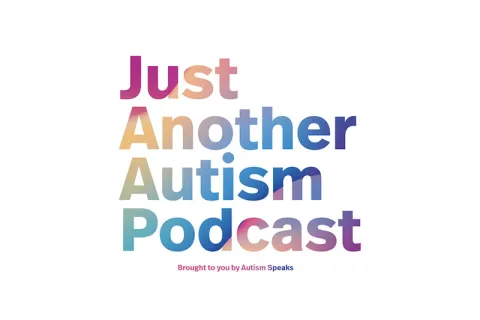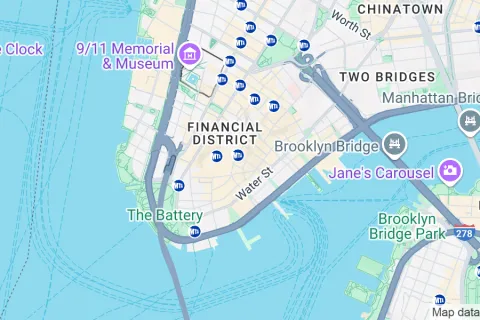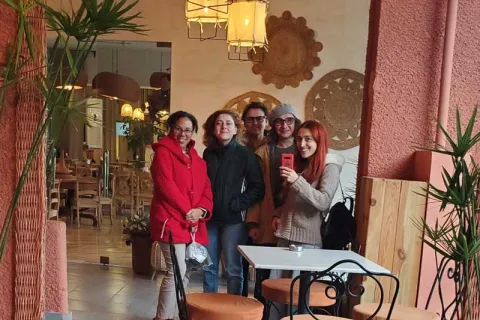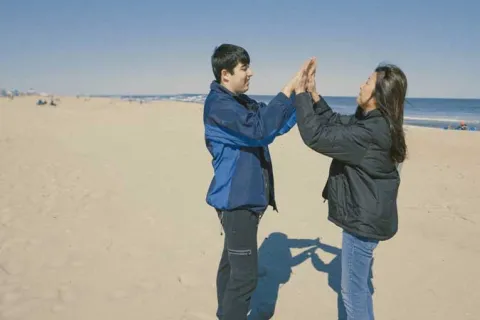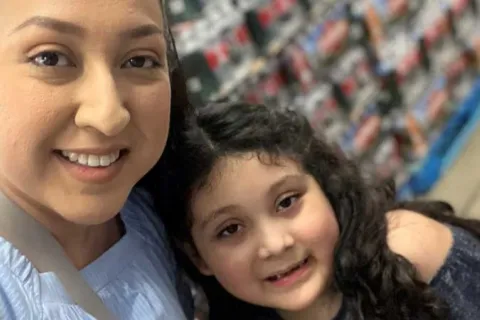Family advisors: The power and importance of connection
By Amy Kelly, MBA, MNM and Liza Krassner, MPA May 6, 2019For many families who care for a loved one with autism spectrum disorder, access to knowledge and resources to support autism is critical. The right supports can enhance a life that is meaningful and productive. For me and my colleague, Liza Krassner, we understand how important these resources are. We are both parents of children with autism who also serve on the Family Advisory Committee (FAC) of the Autism Speaks Autism Treatment Network/Autism Intervention Research Network on Physical Health (ATN/AIR-P). This group of 12 sites across the U.S. and Canada represent a wide array of autism services, research and clinical programs, supports, treatments and interventions – an invaluable network of expertise.
In our work with the FAC, Liza and I bring our perspective as autism parents to our collaborations with the clinicians and practitioners in the network. Together, we establish best practice standards to improve treatment outcomes and quality of life for individuals with autism. Our work has been both illuminating and very rewarding. Annual in-person meetings and many weekly and monthly webinars, meetings and phone calls give network members the chance to get to know each other while working on autism research and quality improvement efforts together. This has built unique and lasting relationships both professionally and personally for everyone.
Liza was particularly struck by the power of this network when a family recently reached out for help. Her husband connected her to a colleague looking for information about autism. He has a non-verbal grandson with autism. As someone who’s been in this autism journey for over twenty years, Liza knows that families often feel more comfortable seeking help from someone they expect might share similar stories and experiences. She also knows the initial “ask” for help is never easy, deeply personal, and sometimes even embarrassing.
“Meeting my husband’s colleague was profoundly remarkable,” Liza adds. “This confident, dynamic, and elegant man with enormous presence humbly came over to our home, equipped with his grandson’s IEP. I’m not an IEP or educational expert, however, after listening to a few minutes his story, I could sense that his family was at a breaking point and that help was desperately and critically needed.”
Liza knew help was essential not just for the child, but for the entire family of caregivers. But, she was in California and the family was living in Philadelphia. Enter the network.
“I assured him that if there’s anyone in Philadelphia whom I trust could provide help and hope, it would be Amy,” Liza said.
Liza and I have worked together on the FAC for five years – she with the University of California – Irvine ATN site, and myself with the Children’s Hospital of Philadelphia ATN site. As a mother of three teenagers, one of whom has severe autism and intellectual and developmental disabilities, I understand firsthand the daily efforts and struggles that families living with autism endure.
After reaching out to me, Liza was able to connect us. I initially met with Liza’s contact, the grandfather, one-on-one. For grandparents, a common challenge can be knowing how much to insert yourself and your ideas about autism treatments and interventions into the immediate family’s life. For the parents, this can sometimes feel like judgement, disapproval or naggings as opposed to information and good intentions. Fortunately, this grandfather was able to recognize this. He was also able to be very open about his concerns for his daughter and her family, and his grandson.
Later that week, I met with the family directly to understand their daily challenges, obstacles and worries from their perspective. I have since been working directly with the family, assisting them in improving their son’s IEP and school placement, navigating other systems of care (like that for Intellectual and Developmental Disabilities, and Behavioral Rehabilitative Health Services), and coordinating new services that they never would have known existed before.
Importantly, this family now as the benefit of having a peer connection with me, someone who also deals with the same daily, challenging issues in my own life and family. These connections help reduce the feelings of isolation that most families living with autism encounter.
Months have since passed Liza connected me with this family. She recently received a message from her husband’s colleague, thanking her for connecting his family to me and for the new encouragement that his family feels.
Receiving and treating a diagnosis of autism is much like the old adage, “Eating the elephant one bite at a time.” It is truly a massive undertaking. Having contact with another family who walks in their shoes can help to prioritize and make sense of the enormous task of learning and accessing everything a family needs to get appropriate treatments and support that lead to a quality life.
The ATN/AIR-P Family Advisory Committee made it possible to help one more family in crisis navigate the very complex and confusing system of services and supports that are so critically needed. It also gives the magic of comradery and bond the hearts of our families, giving and sharing the elusive gift of HOPE, which is priceless.


